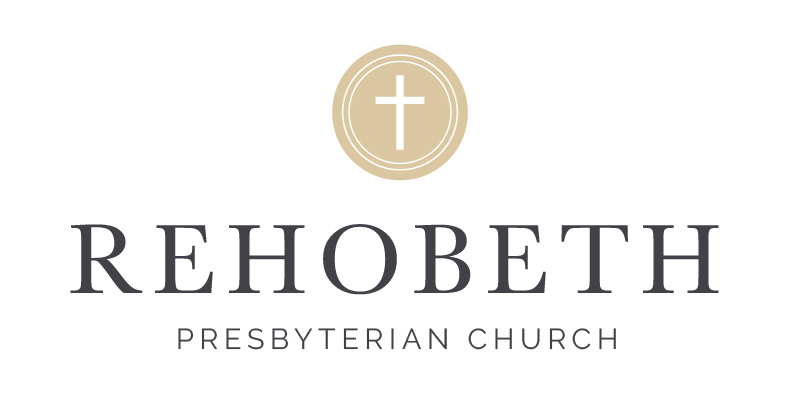In our last entry, we spoke of humanity in terms of two Adams. The First Adam, the father of all people, failed to protect his wife spiritually from the sly encroachment of the serpent. In fact, he himself gave in to the enemy's temptation. The First Adam took upon himself the role of God, making up his own rules while snubbing God's law (which was, essentially, “You shall not eat of the Tree of the Knowledge of Good and Evil”).
Yes, that act of rebellion might have occurred thousands of years ago by one man; but Scripture asserts that Adam's sin has brought death – spiritual and physical – upon all human beings. Even you and me.
Finding your identity, then, means that you come to grips with the identity of your first father, Fallen Adam.
Recently, companies have advertised mail-in kits that allow for a DNA sample to be analyzed so you can know your actual heritage. One wonders how many folks have been stunned by the results! Frankly, discovering one's family origins can be downright humbling.
This is exactly the case for you when you search God's Word with an open heart and mind – and receive what's taught in Romans 5:12-21.
A Past I Can't Shake?
One of my seminary professors told the story of a student of his who had come from a family with a deservedly poor reputation in their community. The family's last name was synonymous with immorality, dishonesty and generally base conduct.
By God's grace, the student had come to repent of his sin and to believe on Jesus Christ and even sensed God's calling to the ministry. While at seminary, however, he was disturbed by the shadows of his family's past. It was almost as if he'd never be able to outrun their sullied reputation, or that God couldn't use him in the pastorate because of his last name.
My professor comforted the man with this truth: all of us, as children of the first Adam, have a “bad family past.” None of us deserves salvation. And all of us who trust in Jesus Christ enjoy this glorious prospect: in Him, we are not dragged down by our past (or our family's past, however broadly one conceives of “family”); rather, we are always looking to the future through the lens of our new, forgiven, restored identity in Jesus Christ (1 John 3:2-3).
The Faithful Adam
As we've already mentioned, St. Paul refers to our Lord Jesus Christ in various ways in his letters, but one name for the Savior – “the Last Adam” – captures the connectedness of God's plan of salvation in history. History and humanity really are a “tale of two Adams.”
This is the message of Romans 5:12-21 and 1 Corinthians 15:21-22. The First Adam broke God's covenant and brought death on us all. The Last Adam, Jesus, obeyed God's covenant and through his death (for your covenant-breaking!) gives life to all who believe on him. The First Adam shattered man's fellowship with God; the Last Adam restores that fellowship (because, as he bore the sin of his people on the cross, his fellowship with God the Father was severed for a time: see Matthew 27:46 and Habakkuk 1:13).
The First Adam brought shame – and bowed heads – to us all. The Last Adam bestows dignity and, with his own hand, lifts the heads of all who trust in him.
Taking on the Family Resemblance
Isn't it fun to note characteristics among family members? One side of my family has a telltale “schnoz” (nose). The other side is rife with small, chubby hands and feet.
Your family has traits, too. Oddly, even family members who aren't blood relatives seem to begin to look like one another over time – that seems to be the case with couples who've been married for decades. We tend to take on the family resemblance.
When a person believes on the Last Adam for salvation, he immediately is forgiven by God (1 John 1:8-9) and adopted into God's family. What's more, by God's work in us, you and I begin to take on the resemblance of God's family. Specifically, the Lord enables us to bear His image – to look more like Him – in daily life.
Writing to the Ephesians and to the Colossians, the Apostle Paul says we're being renewed continually in the spirit of our minds, so that Christians are always shedding the “old self” (the First Adam and his sin) and putting on the new man (the Last Adam and his obedience). In fact, he writes in Ephesians 4:24 and in Colossians 3:10, we're putting on the very likeness of God, who made us!
Now, this doesn't mean you're becoming divine. Of course not.
But it means you're growing in the knowledge of God, intellectually (through Bible reading and study) and personally (through fellowship with Him in prayer and in the sacraments of baptism and of the Supper). It means you're loving more and more what He loves and rejecting what He rejects (sin, filth, pride, greed and the like). You're taking on his mindset, which was of submission to the Word, while casting off the reign of idols (especially the idol of “me”).
You're living out your new identity in Jesus Christ, the Last Adam – an identity of dignity, of uprightness and of hope.
What's your identity? It's not in a cause or in your past or in your work or in your hobbies.
It's in your Savior – the true and perfect man, Jesus Christ.
